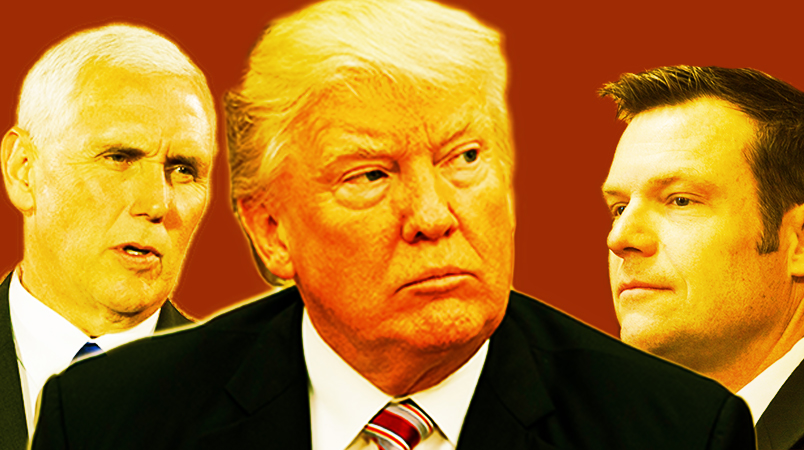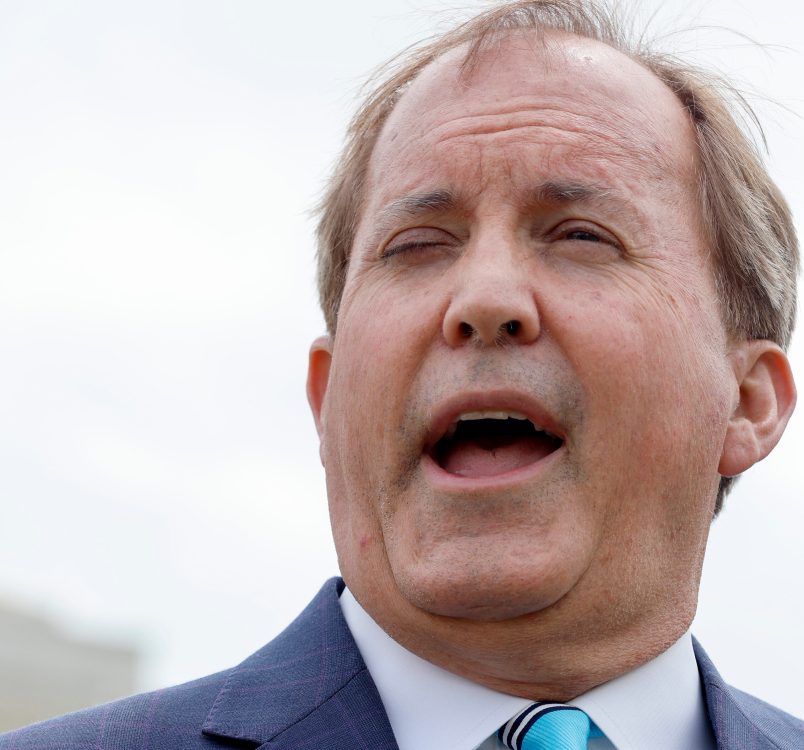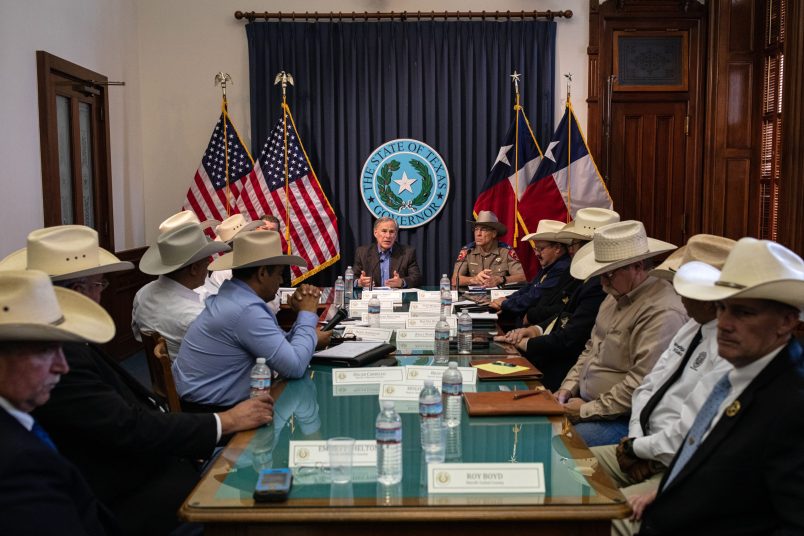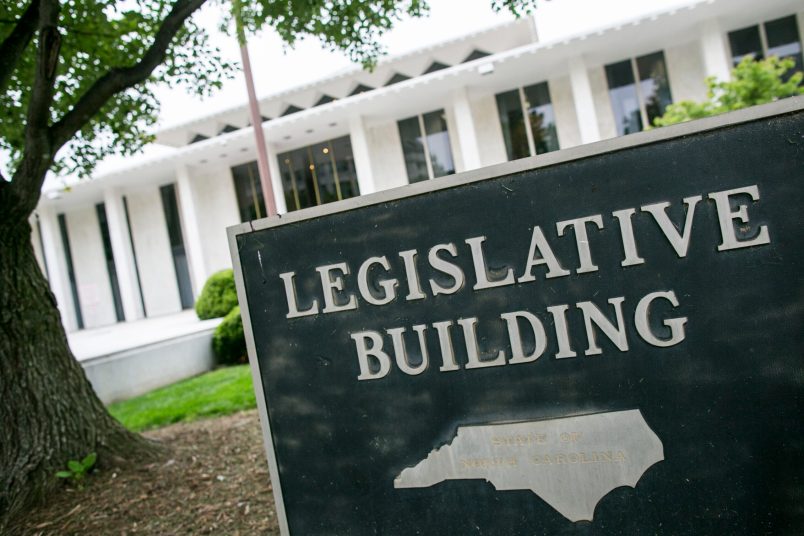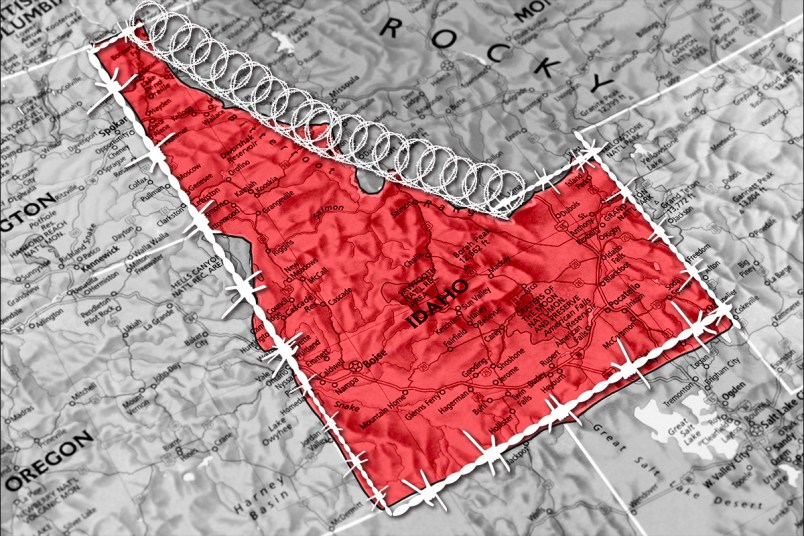The people who professionally study election protocols are very worried about the commission President Trump has created to ostensibly study election protocols. The so-called “Presidential Commission on Election Integrity,” which was unveiled in an executive order last week, is being viewed with deep skepticism in the voting rights community.
That is in no small part due to Trump’s outlandish and unsubstantiated claims that millions of people voted illegally in the 2016 election; the commission appears to be the result of Trump’s promises of a “major investigation” into voter fraud.
But there are also other hints, tells and coded language signaling that the aims of the commission are less concerned with nonpartisan study of election protocols and more likely to be seeking to trumpet allegations of voter fraud, which has historically been used as an excuse to enact restrictive voting laws.
Here are five points on what Trump’s bogus ‘Elections Integrity’ commission is really about:
Beware the heavy emphasis on voter fraud.
Voter “fraud” or “fraudulent” voting is mentioned five times in the executive order, which goes on to define four types of alleged illegal voting that will be within the purview of the commission. Prospective commissioners floated for the commission—and especially its vice chair, Kansas Secretary of State Kris Kobach—have made careers out of fanning the flames around flimsy fears of voter fraud and advocating for stricter voter laws.
Study after study has found voter fraud—and particularly the types of fraud prevented by a voter ID—to be extremely rare. Yet Kobach said that it was “a very large number” that was “ probably in excess of a million,” when defending Trump’s baseless allegation that millions of illegal voters where the reason he lost the popular vote.
What these stricter laws end up doing is making it harder for certain groups, particularly low income voters and minorities, to vote. One of the two Democrats reportedly tapped for the commission, Maine Secretary of State told TPM last week he would “walk away” if the commission was used as a “trojan horse” to impede access to the ballot box.
The who is as important as the what.
The Trump administration is stressing that commission will be bipartisan, but the lack of participation to this point by any moderate, widely-respected Republican election officials is notable. Instead the GOPers tapped so far for the commission are on the fringe when it comes to voting issues.
Vice President Mike Pence is chairing the commission and joining him in serving on it is Indiana’s Secretary of State Connie Lawson (R). Indiana authorities, under both their watch, launched a sketchy raid of a voter registration drive last fall, and the two Republicans have been accused of overhyping the results. Lawson has since purged Indiana’s voter rolls of nearly half-million names ahead of the next election. Previously, as a state legislator, Lawson was an original sponsor of the state’s 2005 voter ID law, which was upheld in a seminal Supreme Court case.
Former Ohio Secretary of State Ken Blackwell has also been tapped for Trump’s commission. Blackwell was at the forefront of the initial push to implement voter ID laws in the mid-aughts. As Ohio’s top elections official, he was investigated by Democrats on the House Judiciary Committee for his handling of the 2004 elections in the state. He imposed stringent requirements on voter registration drives, including a directive to ignore registrations not printed out on 80-pound stock paper.
Maine Secretary of State Matt Dunlap (D) stands out among the group, for being skeptical of voter restrictions and instead, as he described himself to TPM last week, as a “strong advocate for voter access” who was skeptical of restrictive laws. The other Democrat so far named, New Hampshire Secretary of State Bill Gardner has some—let’s say—unique views on administering elections and once said that early voting, which is used disproportionately by minority voters, “cheapens the value” of election day. He is also supportive of a Republican bill in the state that adds new requirements for certain voters to prove they live in the state, a move critics say is to make it harder for students to vote.
Red flag: No mention in the order of voter suppression.
Reports leading up to the formal unveiling of the commission suggested looking at voter suppression would also be among its charges, as a way to get Democrats to sign on.
The executive order makes no such reference in the commission’s mission, suggesting that the study of voter suppression is not actually a priority of the commission.
Kobach has continued to claim that voter suppression will also be studied. But it’s hard to take that seriously, given that voter suppression is not defined, nor even mentioned in the entire executive order text and many of the people floated to be on the commission have played it down as an issue.
Telltale sign: A peculiar focus on “confidence” in the election system.
The main focus of commission, the order says, is to study whether the public’s “confidence’ is being “undermined” or “enhanced” by certain election protocols. The emphasis on confidence reflects a broader shift in the legal defense of restrictive voting laws: in the absence of legitimate cases of voter fraud to justify the new laws, proponents have argued that because people believe there is a prevalence of voter fraud, the laws are necessary.
“All of us who work in this area know that measuring confidence in electoral rules is something that is both easy to do and amenable to gross manipulation,” Nate Persily, who served as a senior research director for President Obama’s Presidential Commission on Election Administration, told TPM over email.
Persily, an election law expert at Stanford Law, has worked on studies that showed factors like partisanship, education and one’s trust in government influence confidence in an election, beyond actual instances of fraud or restrictions placed on voting ostensibly meant to prevent fraud.
The order is fixated on voter registration issues.
The order mentions time and again the commission’s interest in instances of “fraudulent” or “improper” voter registration. This is no coincidence. Overblown concern about non-citizens being registered to vote is the latest frontier in the campaign to enact stricter laws.
Kobach has been seeking to implement a proof-of-citizenship registration requirement, while elsewhere organizations that conduct voter registration have been targeted by GOP lawmakers.
Election experts and voting rights advocates acknowledge that yes, occasionally mistakes are made and people such as felons or non-citizens are accidentally registered to vote, for instance, while getting a driver’s license. But oftentimes, the ineligible voter never casts a ballot, and doesn’t even realize he or she was registered, and thus prosecutions have been rare.
Furthermore, the order disregards the importance of intent in the commission’s investigation of irregularities.
The commission will study acts conducted “regardless of the state of mind or intent of that individual,” the order says in its definition of “improper voting” and “improper voter registration.”
“They seem to want to reach even those individuals and elections administrators who make an honest mistake or in the course of administering an election to hundreds of millions of Americans,” said Janai Nelson, Associate Director-Counsel of the NAACP-LDF.
Nelson worried that those instances “may be manipulated to paint a picture of voter fraud that really is not existent.”


